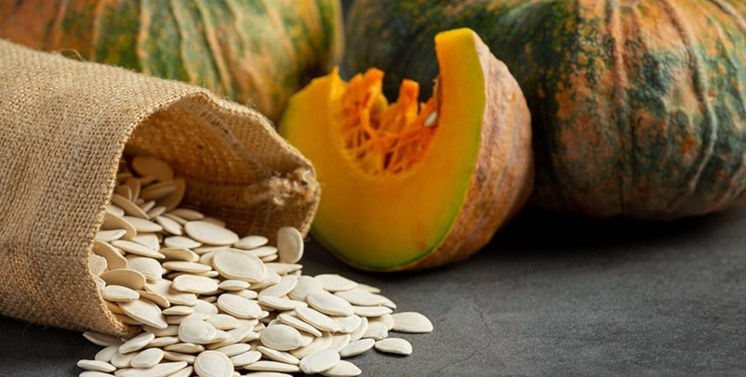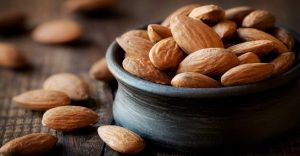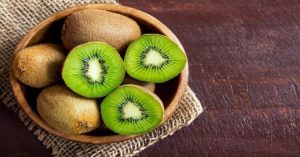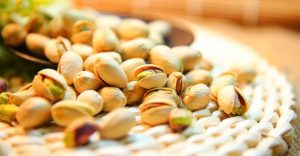Nowadays, many foods and beverages are associated with better sleep. While some of them can really improve sleep, others are only misinformation that swirls around the internet.
In this article, we will discuss one of them; pumpkin seeds.
The claim is that eating pumpkin seeds before going to bed promotes sleep, helping individuals overcome their sleep problems.
How accurate is this? Can pumpkin seeds really induce sleep, thus helping people to better deal with insomnia?
The Short Answer…
The short answer is ”Yes, eating pumpkin seeds before going to bed may promote sleep“, according to studies and medical experts.
That is to say, if you usually toss and turn around at night, you may want to consider eating a handful of pumpkin seeds before going to bed.
How Do Pumpkin Seeds Aid Sleep?
“Eating a handful of pumpkin seeds before bed may aid sleep“, we said above.
The question is, how? What makes pumpkin seeds a natural sleep aid?
The main reason, pumpkin seeds are strongly associated with better sleep is that they contain some sleep-promoting nutrients.
These nutrients are tryptophan, zinc and magnesium. Note that all of these nutrients abound in pumpkin seeds (1),(2).
What Evidence Will We Provide?
So now we know that thanks to tryptophan, zinc and magnesium content, pumpkin seeds may help people sleep better, especially when eaten at night. This is because these nutrients directly or indirectly induce sleep.
The thing is, can we provide evidence showing that these nutrients are good for sleep?
We certainly can and will do! Below, we will explain one by one how these nutrients contribute to sleep by providing scientific evidence.
Sleep & Pumpkin Seeds – Expert Opinions
Above we said, ” According to studies and medical experts; eating pumpkin seeds before bed can help promote sleep”.
Firstly, let’s find out what medical experts have said about the relationship between pumpkin seeds and sleep. Then, we will analyse the related studies.
“Food can be a strong support in the quest for a good night’s sleep, — Trouble staying asleep? Try pumpkin seed or pumpkin seed powder as a solution, — Those who cannot stay asleep and wake throughout the night are typically low in serotonin, — And, pumpkin seeds are rich in tryptophan that the body uses to make serotonin,– said Dr Pina LoGiudice – co-founder and director of InnerSource Natural Health and Acupuncture – in an article published on doctoroz.com (4),(5).
“Pumpkin seeds are rich in magnesium and tryptophan, which has been helpful in treating insomnia. The human body converts tryptophan into serotonin, then melatonin, the relaxing sleep hormone,” said Tracee Yablon Brenner – a registered dietitian nutritionist and trained culinary professional – who talked to Food Network (6),(7).
“If you are looking for a late-night snack, if you have sleep problems or if you need a little bit of extra bedroom “love” performance, 25-30 grams (half a cup) of pumpkin seeds can help you, “said internal medicine specialist, PhD, Author, Osman Muftuoglu in an article published on Milliyet (8),(9).
Pumpkin Seeds and Better Sleep
Potassium, tryptophan and zinc. These are the nutrients making pumpkin seeds an ideal late-night snack for those who want to get a good night’s sleep.
So, how do these nutrients affect sleep? What do they do in the body and induce sleep?
In this section, we will scientifically explain the role of each of these nutrients in sleep. Please keep on reading…
1-) Tryptophan in Pumpkin Seeds Promote Sleep
It is safe to say that the main reason pumpkin seeds are associated with better sleep is that they contain a substantial amount of tryptophan.
Tryptophan is an essential amino acid that cannot be produced by the human body. So, it has to be taken from animal and plant food sources, according to WebMD (10).
If you often feel sleepy or relaxed after consuming certain foods such as turkey, kiwi or milk, this is mainly because they contain a considerable amount of tryptophan (11),(12),(13).
How Does Tryptophan Promote Sleep?
Firstly, it is important to say that tryptophan doesn’t directly affect your sleep. It rather starts the process.
Tryptophan is required for the production of serotonin and melatonin hormones (14),(15). Both of these hormones, especially melatonin play a crucial role in sleep.
Seratonin
According to different reports and medical articles; while serotonin is exactly involved in wakefulness, it may also contribute to sleep by relaxing the body (16),(17),(18),(19).
However, one thing is certain about serotonin! It is necessary for the production of melatonin (19),(20).
Melatonin
The human body uses tryptophan to produce serotonin, and then uses serotonin to produce melatonin. Shortly, tryptophan > serotonin > melatonin (21).
In the evening melatonin production starts rising and it is released into the bloodstream and reaches all body tissues, thereby, promoting sleep (22).
“Melatonin puts you into a state of quiet wakefulness that helps induce sleep,” says Johns Hopkins sleep expert Luis F. Buenaver (23),(24).
How much tryptophan for sleep?
According to multiple studies, consuming 1 to 2 mg of L-tryptophan each night over several nights can significantly improve sleep quality and quantity (28),(29).
According to the USDA Food Composition Database, 100 gr of pumpkin seeds have 0.58 g tryptophan (30).
Summary
The conclusion is, in order for both melatonin and serotonin to be produced in the body, tryptophan is necessary.
It bears repeating, the human body can’t produce tryptophan, therefore, has to be taken through the diet.
This is why tryptophan-containing foods such as kiwi, turkey, almond milk and pumpkin seeds are heavily associated with better sleep.
2-) Zinc in Pumpkin Seeds May Aid Sleep
After iron, zinc is the second most abundant trace mineral in the human body and has many roles (31),(32).
Growing evidence tell us that zinc may also have sleep-inducing properties.
Let’s look at a couple of these studies.
Zinc Supplementation Improved Sleep Quality – Study Found
In one study, researchers aimed to evaluate the impact of zinc supplementation on the sleep quality of intensive care unit (ICU) nurses.
One group were given zinc tablets while others were given a placebo. After a month, researchers assessed the sleep quality of ICU nurses.
It was found that the zinc-supplementing group of nurses slept better compared to the nurses in the placebo group.
Zinc Deficiency May Lead Insomnia – Study Suggests
In one review of studies on zinc and sleep, researchers aimed to examine the potential role of zinc in sleep.
A survey – carried out by the National Health and Nutrition Examination – revealed that people who sleep less than 5 hours a night were found to consume less zinc than those who sleep 7 to 9 hours a night.
In the review, researchers also cited other studies and articles, showing the potential relationship between sufficient zinc intake and reduced sleep problems.
Researchers concluded that more research is needed to understand the mechanism of how zinc aids sleep; however, zinc appears to have a role in regulating circadian rhythm and inducing sleep (33).
Zinc Helps Convert Tryptophan to serotonin – Healthline Says
According to Healthline; zinc – which is found in great quantities in pumpkin seeds – helps convert tryptophan to serotonin (34).
And, as we discussed in detail above, serotonin is the precursor of melatonin, the sleep-inducing hormone.
How Much Zinc is Available in Pumpkin Seeds?
Pumpkin seeds are an excellent source of zinc. It is suggested that 100 g of pumpkins seeds contain around 8 mg of zinc (35),(36).
The recommended daily intake of zinc is 8 mg for women 11 mg for men (37),(38).
Summary
Although it may not be direct, zinc appears to impact sleep quality. So, it should be safe to suggest that the high amount of zinc in pumpkin seeds may contribute to sleep quality.
3-) Magnesium in Pumpkin Seeds Help Sleep
It is reported that up to 80 per cent of Americans do not consume enough magnesium, leading to a high number of magnesium-deficient people in the country (39),(40),(41).
What’s obvious is that magnesium deficiency can lead to serious medical conditions if left untreated.
It is suggested that consuming less magnesium than the body needs can also cause various sleep problems (42),(43).
So, if you live in the USA or other countries where the western diet prevails, then you, too, might be lacking magnesium and suffer from insomnia as a result.
If that is the case pumpkin seeds can help because they are one of the most magnesium-dense natural foods.
How Does Magnesium Help Sleep?
When experiencing too much stress, getting a good night’s sleep is not easy at all. Good sleep requires the body and brain to be relaxed and stress-free. Essentially, this is where magnesium comes in handy.
Studies and medical experts suggest that magnesium help sleep longer by relaxing the body and reducing stress (44),(45).
In addition to its relaxing feature, magnesium also regulates the melatonin hormone (46).
What’s more, it is claimed that having an optimal level of magnesium in the body can reduce the symptoms of restless legs syndrome, a condition that can severely hinder sleep quality (47),(48).
How Much Magnesium Available In Pumpkin Seeds?
It bears repeating, pumpkin seeds are one of the most magnesium-dense natural foods.
According to Medical News Today; A 100-gram (g) serving of pumpkin seeds can contain over 90 mg of magnesium (49).
Please note that a healthy adult man requires around 400 mg of magnesium intake while a healthy adult woman requires around 310 mg of magnesium (50).
That is to say; 100 gr of pumpkin seeds can meet almost one-third of your daily magnesium need.
Summary
With their high magnesium content, pumpkin seeds can help your body relax, which in turn, may help you sleep better.
Final Verdict
Multiple studies have reported that a lot of people around the world suffer from various sleep problems (50),(51),(52).
However, since sleeping medications associated with some side effects, many people seek natural solutions (foods) for their sleep problems.
In this article, we have discussed one of these natural solutions for insomnia; Pumpkin seeds…
With their potassium, tryptophan and zinc content, pumpkin seeds can help you get a good night’s sleep. And, we profoundly explained how these particular nutrients positively impact sleep. Plus, pumpkin seeds may also help you lower blood pressure.
Certain foods like pumpkin seeds, kiwi fruit, almond milk, chamomile tea and pistachios may improve sleep especially when consumed before bed.
Having said that, if you suffer from a sleep problem for an extended period of time, we strongly recommend you work with your doctor to find the underlying cause and get the best treatment possible.
However, if you think your sleep problems are manageable, try a handful of pumpkin seeds, who knows they can be your saviour in terms of sleep.
Note that, to get a good night’s sleep, a handful of pumpkin seeds may be sufficient.
Note:
Do not consume too many pumpkin seeds at night. They can bring about some digestive problems such as gas, bloating and constipation.
Tarkan is an experienced health writer ( currently more than 600 articles ) and also the founder of this website namely www.neededforhealth.com. His expertise in health stems from in-depth medical research and knowledge which he obtained over the course of many years.
Tarkan enjoys sharing factual knowledge on health, psychology and nutrition. He always aims to deliver evidence-based recommendations, provide links to related scientific studies.





